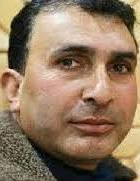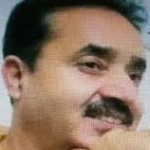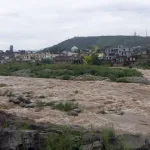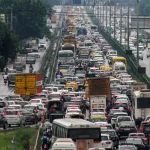For social progress, security, prosperity and development, educating the citizens bears primary importance — one that empowers people to fight poverty and economic backwardness. It is education that guides people out of the mire of ignorance and enlightens them to fight diseases and harness human and non-human resources judiciously. More importantly, education helps a person discover the deep rooted causes of social backwardness; and find out its remedies alongside effects as well.Notably, it is on the strength of education that some two dozen countries enjoy the status of being ‘developed’ with higher per capita income and sophisticated technological facilities. Education has empowered and enabled these nations to explore and utilize their natural resources for the social progress. Plus, these states have raised the standard of living of its citizenry thanks to their broad vision concerning life. Best living facilities and economic opportunities in those states account for attracting people from the global south.The fact is that practical and useful education guarantees durable peace, progress, prosperity and integrity of a nation. Nelson Mandela, the man who led a back breaking fight against the apartheid in South Africa, said: “Education is the most powerful weapon which you can use to change the world.”As a formal agency of education, school plays a crucial part in moulding the ideas, habits and attitudes of a child to shape it into a balanced personality. Higher education shapes and sharpens a person into a quality human resource. The main and noble purpose remains enhancing the resolving power of a human mind to produce intellectuals, scientists, leaders and administrators who will guide society to the path of progress and prosperity.One often finds a talk on quality education to be imparted in Jammu and Kashmir. Speeches of high sounding words, loud slogans, seminars and workshops talk about the importance of education. But unfortunately our higher education institutions end up producing an army of graduates and post graduates– only to be unemployable. These unemployed people find no good source of income and end up in depression or doing a modest job for very low wages.
We definitely need quality education. However, that cannot be achieved through a network of colleges and universities. We have to explore resources for employment to increase job opportunities, keeping in view the fact that the government, as the only agency of employment in the state, should be supported by private sector which can absorb our unemployed but employable population.The last twenty years have seen an increased number of higher Education institutions. We have more than 100 government and private colleges and many universities. In view of the poor infrastructure, inadequate faculty and facilities, quality in these institutions is declining. Though we spend millions of rupees on higher education and open several colleges, quality education is evading us and seems to be a distant dream. The educated youth may have an academic excellence. But they must be armed with technical skills and confidence to get a job.Learning by rote memory, non- application of knowledge and examination based on faulty practices-all have spoiled our higher education. The system does not encourage critical thinking, creative use of knowledge, decision making and problem solving skills.And it also does not teach students how to face the challenges and problems of real life. Since we simply test memory and worry about test scores, we narrow the scope of education, devalue a degree and waste the human talent. True but tragic is that the moral fiber is lacking in our education set up which is blindly oriented towards materialism and as a result, moral degeneration is deepening its roots in our society.
Most of the students register themselves in B.sc classes at colleges but do not turn up till competitive tests like NEET do not end. Thus science academics take a severe beating at colleges. Then despite having a massive attendance shortage, these students appear in the university exams and get degrees. Since, we cannot and should not stop these students from the competitive exams; we should hold these exams in Jan or Feb to enable the students to attend colleges regularly.And then, our students show no zeal and seriousness in the academic courses as they are disappointed that an academic degree lacks better prospects. We will require special counseling cells in our colleges to clarify to the students that about 60% of jobs advertised yearly in J&K or India require a college degree. We need to brief them that even exams like IAS and KAS just require a college degree.Besides, our universities need to frame job oriented syllabi and narrow down the gap between an academic institution and industries. We need to propose new courses to live up to modern global trends and professional requirements. However, the academic subjects like arts and sciences should not pale into insignificance as they train and help students to succeed in many fields of life. Further, the admissions to colleges should be through competitive exams.
Talking of administration in colleges, we need to bring energetic and competent principals to the helm of affairs. It is the principals around whom the entire college education revolves. They set the stage and work sincerely and seriously with teachers to maintain high standards of curriculum, evaluate the performance of all staff members, and monitor the students’ progress and performance. They also keep a close eye on class rooms, teaching methods, attendance and discipline problems.We cannot overlook the fact that administrative mismanagement, indiscipline, polarization, lobbyism, indifference towards students and personalized dealings- all are eroding the system. That is mainly due to the lack of leadership qualities in the administrative component. That brings into question the appointment procedure of principals. We appoint principals simply on the basis of length of service.Let us opt for descriptive written examination –with a few years of experience as a condition as well– so that the best people come to the reckoning and hold the reign of administration. Besides, the principals should be mandated to visit the top academic and professional institutions of India to enable them to learn about the modern trends in academics and administration.We need to contemplate about the quality of education in our higher education institutions and its relevance in today’s world. And as our higher education system has a huge size now, we must have a higher education commission with members and a chairman to recognize both its academic and administrative sides. So our educationists, academicians, bureaucrats and politicians should put their heads together to discuss these issues on education and come up with innovative solutions. Anything less may prove fruitless.
(Author is RK columnist and teacher by profession. Feedback: [email protected])








